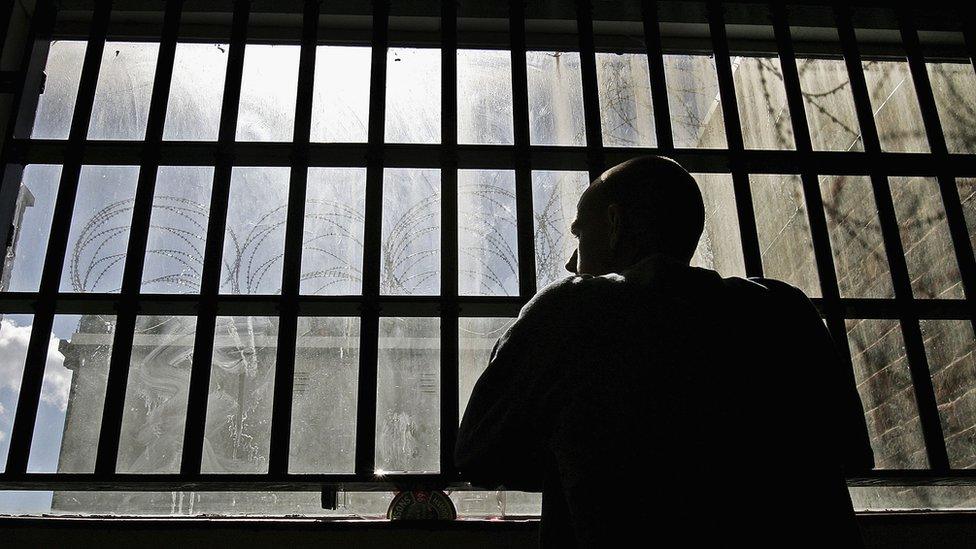New prisons will have no bars on windows, Ministry of Justice says
- Published

Traditional prison window bars are to be phased out in England and Wales, under Ministry of Justice (MoJ) plans.
New jails will instead be fitted with toughened glass and air vents.
Ministers said the windows would be hard to break and better for stopping prisoners "accessing contraband".
Campaigners said bars were "yesterday's technology" and windows would provide a more normal environment in which people would take responsibility for their own lives.
But ex-prisoner turned charity worker and author, Leroy Smith, described the changes as "a pointless gesture" - adding that prisoners needed better education and training.
"Otherwise nothing is going to change," he said.
Bars on prison cell windows are used in most jails, including the most modern buildings such as Berwyn, north Wales and Oakwood, Wolverhampton.
The MoJ has promised to replace old and expensive prison accommodation with 10,000 "modern and safe" spaces.
And the first new prisons are expected to be built on the site of former jails at Wellingborough, Northamptonshire and Glen Parva, Leicestershire in 2021 and 2022 respectively.
Ministers also want to build new prisons in south Wales and near HMP Full Sutton, Yorkshire, in addition to redeveloping existing prisons at Hindley, Greater Manchester and Rochester, Kent.
A Prison Service spokesperson said: "Secure, sealed windows with toughened glass and narrow vents will be used in all cells in future prisons.
"These windows are difficult to break, making them more effective in stopping prisoners from accessing contraband."
Peter Dawson, director of the Prison Reform Trust said: "A normal environment in which people take responsibility for as much of their own lives as possible is preparation for successful release.
"Bars in windows is yesterday's technology."
The move comes as researchers begin a study to examine the impact of a more relaxed and humane prison by examining changes at HMP Berwyn.
There, prisoners are referred to as men, housed in communities rather than blocks, and locked up in "rooms" rather than cells.
There have also been attempts at the prison to fill empty wall space with photos of the local Welsh landscape.
Professor Yvonne Jewkes from the University of Bath said the changes were "relatively simple" but could have "an important effect when it comes to making prisoners feel that they are treated with respect and dignity".
The 拢600,000 study has been funded by the Economic and Social Research Council.
- Published31 July 2018
- Published25 August 2018
- Published21 December 2017